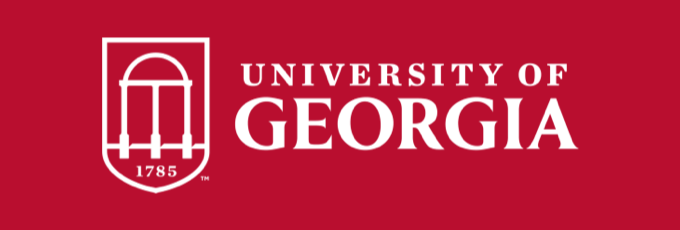People of the 21st century are faced with evolving challenges in every area of society. Progress in science and technology has led us to brand-new horizons, but also created global challenges that must be addressed if we wish to continue advancing.
No matter which industry or sector of society you examine, a variety of challenges has arisen due to social, economic and environmental pressures. Our future success lies in overcoming these challenges through innovative problem-solving and new ways of thinking.
University research plays a central role in solving the world’s grand challenges, harbouring the potential to draw new connections and uncover solutions to barriers that block a better, brighter world. From analysing the most effective treatment for cancer to exploring the psychological effects of unequal wealth distribution, universities are often the builders of frameworks that impact policy-making and individuals’ lives for years to come.
Convergence research is particularly crucial for societal development, focusing on solving complex problems driven by specific needs while integrating cross-disciplinary practices. This research method brings together scientists from diverse backgrounds to develop innovative frameworks that kickstart innovations in scientific discovery and implementation.
Due to its potential to impact wider society and make a real difference in the world, the College of Engineering at the University of Georgia promotes convergence research in its graduate programmes and research projects. This approach allows students to explore real-world problems from an interdisciplinary perspective, using problem-solving skills to develop innovative solutions that make a difference out in the world.
In today’s graduate market, the ability to show resilience, creativity and logic through problem-solving is one of the most sought-after skills among current employers. According to a report by the European Commission, an average of 60 percent of employers said they rank problem-solving skills as very important or rather important when recruiting recent graduates.
By studying a graduate programme at the University of Georgia’s College of Engineering, you’ll have the chance to embrace these important issues alongside leading academics in a tight-knit academic community, uncovering new trends and solutions within your field and beyond while developing highly valued skills currently in today’s graduate employment market.
Take current research assistant and doctoral candidate in bioengineering, Jitendra Pant, for example. During his two years at the University of Georgia, Pant has been able to join Assistant Professor Hitesh Handa’s research project on bioengineered wound dressings with antibacterial properties. These dressings have the potential to greatly reduce hospital-acquired infections, a major problem that affects hundreds of thousands of patients worldwide each year. Pant has published nine articles in peer-reviewed journals, presented papers at three international conferences, and landed his name on three patents.
He says he brings a biological perspective to his professor’s materials perspective, using an interdisciplinary approach to make strides in the project and develop a safer and more effective healing method.
“I want to walk the talk. I left my job in a pharmaceutical company because I wanted to get my PhD… I want to make a difference,” said Pant.
And this is exactly what convergence research at the College of Engineering is about: combining interdisciplinary perspectives to find solutions to complex problems in the wider world.
Graduate programmes at the school immerse students in this academic environment to combine classroom-based teaching with interdisciplinary problem-solving in their area of interest.
While graduate students in other engineering colleges are learning from textbooks and lectures, those at the University of Georgia gain experience that propels them and their industries forward, subsequently impacting the lives of many.
This is exactly the story of Amy Brooks, a PhD engineering student who recently served as lead author of a major study on the potential impact of China’s ban on the import of non-industrial plastic waste. The study, published this summer in the journal Science Advances, explores how the new policy might affect efforts to reduce the amount of plastic waste entering the world’s landfills and natural environment.

Jenna Jambeck. Source: University of Georgia
The study has been frequently cited by news media around the globe and Brooks has appeared at international conferences to discuss her work alongside her mentor, Jenna Jambeck. Jambeck is an associate professor of engineering and one of the world’s leading experts on the management of plastic waste and marine debris.
Another doctoral student in the University of Georgia College of Engineering , Austin Taylor, has developed a medical device that’s small enough to fit on the tip of a catheter. The device expands once inside the heart to provide physicians with high-quality imaging and therapeutic tools – all inspired by origami.

Zio Tse. Source: University of Georgia
Using magnetic resonance imaging coils to record a high quality scan, Taylor has built upon similar origami-like biomedical tools already in use under the close guidance of his professor, Zion Tse, who also recognises the value of origami both as an art form and a useful concept in biomedical engineering.
These innovative, unique and creative responses to industry problems lie at the heart of the College of Engineering at the University of Georgia. Studying here helps graduates delve deeper into the challenges that need solving, giving them the tools and support needed to find interdisciplinary solutions that provide a framework for a better world.
If you’re interested in responding to industry challenges and having a real-world impact on issues you’re passionate about, you can explore graduate prospects at the University of Georgia College of Engineering here.
Follow UGA Engineering on Facebook, Twitter, Instagram, and LinkedIn
Liked this? Then you’ll love…
4 Engineering Schools that open doors to career success
Improve lives with BioMed engineering at the University of Strathclyde











